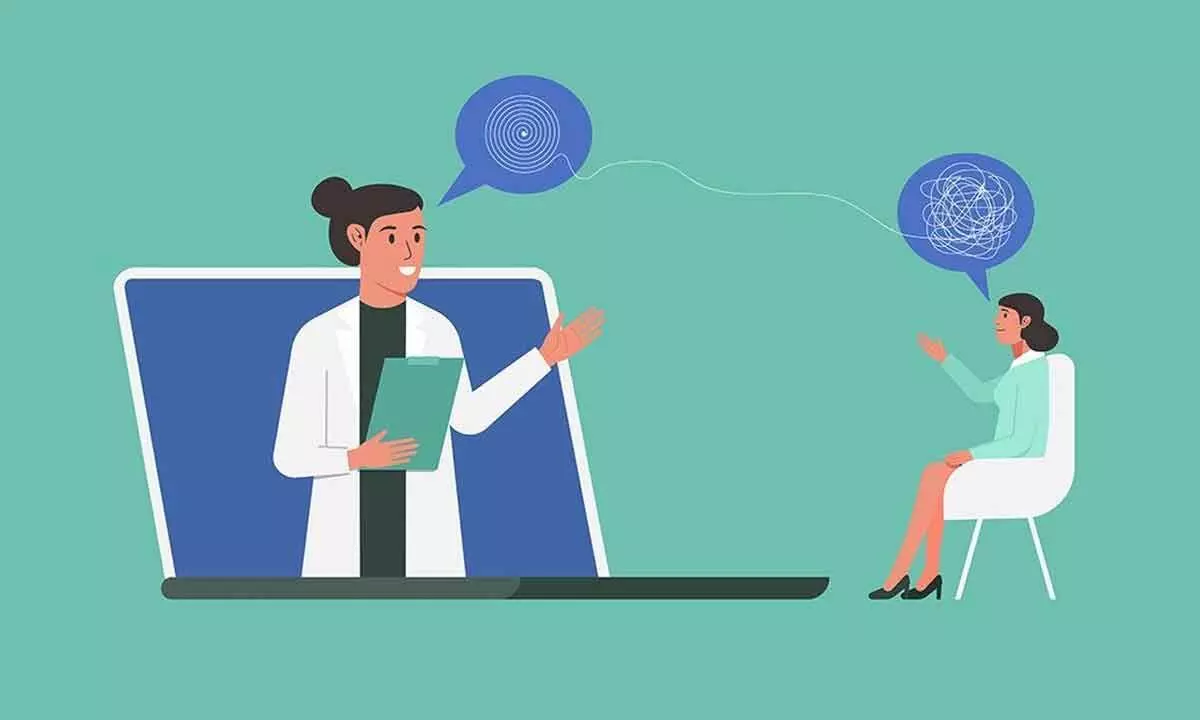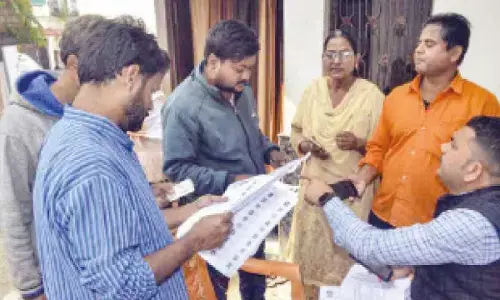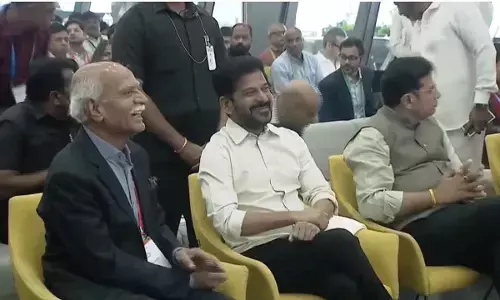Tele-MANAS can help rural access to mental healthcare

A toll-free, 24/7 helpline (14416) has been set up across India
In a major initiative to provide access to mental healthcare services to all the citizens of the country, the Union Ministry of Health and Family Welfare, on October 10 this year, has launched a network of 23 tele-mental health centres across various States and Union Territories (UTs) as part of Tele Mental Health Assistance and Networking Across States (Tele-MANAS) initiative. It aims to provide free tele-mental health services all over the country round the clock, particularly catering to people in remote or under-served areas. Under this mental health program, a toll-free, 24/7 helpline number (14416) has been set up across the country allowing callers to select the language of choice for availing services. The calls would be routed to Tele-MANAS cells in the respective state and union territory.
The programme includes a network of 23 tele-mental health centres of excellence, and quite aptly, the National Institute for Mental Health and Neurosciences (NIMHANS), Bengaluru, has been made the nodal centre and International Institute of Information Technology-Bangalore (IIITB) providing technology support. Indian Institute of Technology (IIT) Bengaluru and National Health Systems Resource Centre (NHRSC) will provide the technical support. Under this initiative, the Union Health Ministry aims to open at least one Tele-MANAS Cell in each State/UT. The States/UTs which have launched the Tele Mental Health Programme on October 10 include Andhra Pradesh, Assam, Andaman and Nicobar Islands, Chhattisgarh, Dadra Nagar Haveli and Daman and Diu, Gujarat, Himachal Pradesh, Jammu and Kashmir, Karnataka, Kerala, Ladakh, Maharashtra, Madhya Pradesh, Odisha, Punjab, Rajasthan, Tamil Nadu, Telangana, Uttar Pradesh and West Bengal.
The Union Health Ministry's rather proactive initiative in this regard is an acknowledgment that there is a mental health crisis in the country in wake of the Covid-19 pandemic and there is an urgent need to establish a digital mental health network that will withstand the challenges amplified by the pandemic. Tele-MANAS will be organised in two tier system - Tier-1 comprises of state Tele-MANAS cells which include trained counsellors and mental health specialists. Tier-2 will comprise of specialists at District Mental Health Programme (DMHP) or Medical College resources for physical consultation and/or e-Sanjeevani for audio visual consultation.
Presently there are five regional coordination centres along with 51 State/UT Tele MANAS cells. The initial rollout providing basic support and counselling through centralized Interactive Voice Response system (IVRS) is being customized for use across all States and UTs. This will not only help in providing immediate mental healthcare services, but also facilitate continuum of care. Specialised care is being envisioned through the programme by linking Tele-MANAS with other services like National tele-consultation service, e-Sanjeevani, Ayushman Bharat Digital Mission, mental health professionals, Ayushman Bharat health and wellness centres and emergency psychiatric facilities. Eventually, this will include the entire spectrum of mental wellness and illness, and integrate all systems that provide mental health care.
It is a fact that apart from the huge human toll, the Covid-19 pandemic has also wreaked unimaginable havoc on economy and other aspects of human life. But, the biggest of all impact of the pandemic was on mental well-being of the people across the globe, and India was no exception. Because of the pandemic, a large percentage of Indians of all ages, all social and economic classes have been suffering from loneliness, stress, anxiety, depression and grief related psychological problems. In fact, even before the Covid-19 pandemic began in March 2020, the world was already immersed in a deep mental health crisis. Despite the fact that at least a quarter of the population was destined to suffer from mental illness throughout their lives, the health authorities world over, including India, did not take measures commensurate with the seriousness of the matter. And the situation generated by the pandemic only made things worse.
Recognising the impact of the Covid-19 pandemic on not just one's physical but also psychological and emotional health, Union Finance Minister Nirmala Sitharaman, in her Budget speech, had announced the launch of 'National Tele Mental Health Programme' to address this grave issue. As the pandemic has accentuated mental health problems in people of all ages, the program is aimed to better the access to quality mental health counselling and care services. Under this backdrop, the launch of the 'National Tele Mental Health Programme' by the Indian government is a step in right direction.
(The author is a freelance journalist with varied experience in different fields)















